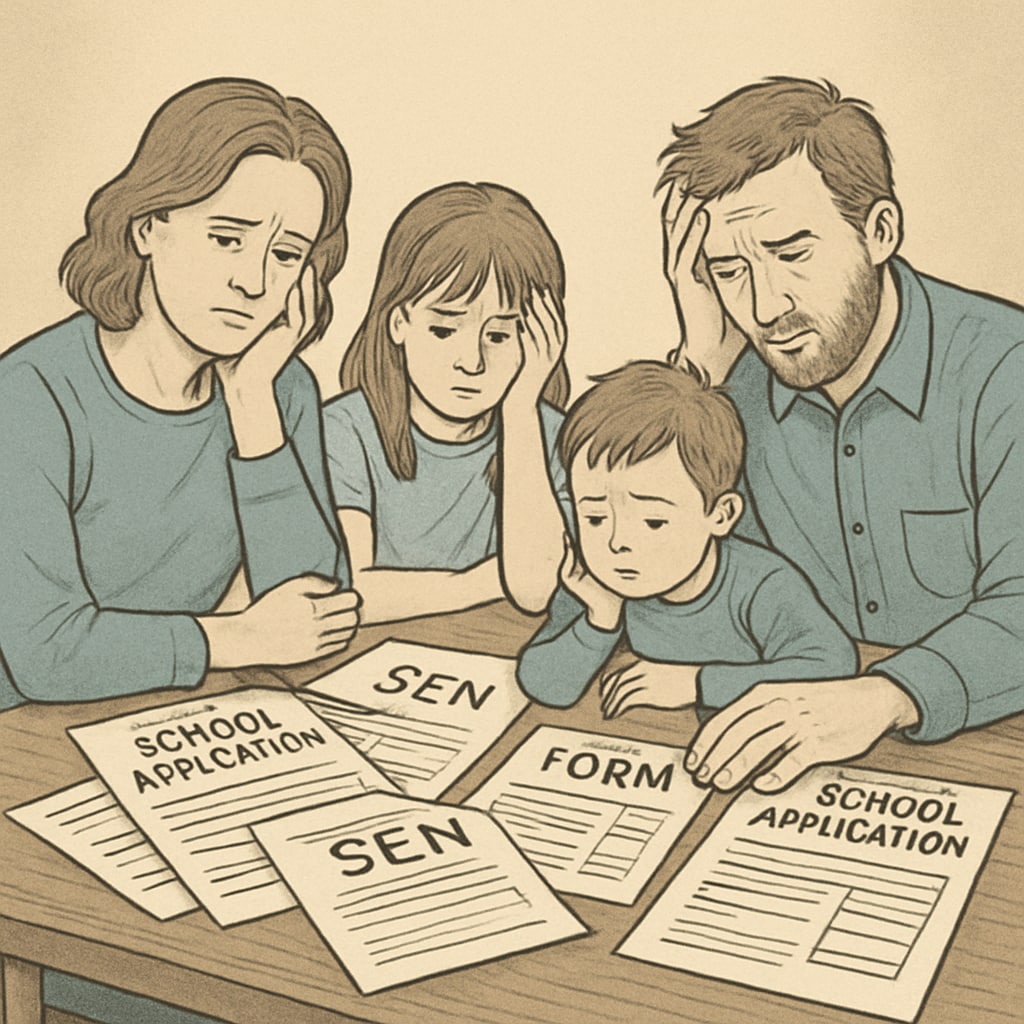In the UK, the school application process for children with special educational needs (SEN) often becomes a challenging ordeal for parents. One recent case involves a 15-year-old girl who withdrew from her school due to severe mental health issues. Her family’s attempt to secure a place at a more suitable institution unveiled systemic obstacles and bureaucratic delays, reflecting a broader issue within the country’s educational framework. The responsibility of local education authorities (LEAs) in ensuring timely and appropriate placements for SEN students has been called into question, leaving many families feeling helpless but determined to fight for their children’s educational rights.

Understanding the Barriers in the School Application Process
Parents of SEN students often encounter a maze of administrative hurdles when trying to transfer their children to a new school. These barriers include insufficient communication from LEAs, a lack of available places in specialized schools, and lengthy delays in processing applications. In many cases, these delays exacerbate the mental health challenges of the children involved, as prolonged periods without access to education can lead to feelings of isolation and regression in development.
For example, in the case of the 15-year-old girl mentioned earlier, her parents reached out to their local education authority for support after withdrawing her from her previous school. Despite providing detailed medical evidence highlighting the urgency of her needs, the family faced months of waiting without any resolution. As a result, the child’s mental health deteriorated further, compounding the difficulties she already faced.

The Role of Local Education Authorities in SEN Placements
Local education authorities play a pivotal role in ensuring that children with special educational needs receive appropriate placements. According to UK law, LEAs must consider each child’s unique circumstances and provide timely support to meet their educational requirements. However, resource constraints and systemic inefficiencies often prevent these obligations from being fulfilled.
In many cases, LEAs cite a lack of funding or specialized school placements as reasons for delays. Furthermore, parents frequently report feeling excluded from the decision-making process, with little clarity provided about how decisions are made. This lack of transparency not only frustrates families but also undermines trust in the system.
How Families Navigate the Systemic Challenges
Despite the obstacles, many parents refuse to give up on their children’s right to education. Advocacy groups and legal resources have become invaluable for families navigating the SEN system. Organizations such as IPSEA (Independent Provider of Special Education Advice) offer free advice and support to help parents challenge decisions and secure appropriate placements for their children.
Additionally, some families have turned to social media and local media outlets to raise awareness of their struggles. By sharing their stories, they hope to pressure LEAs and policymakers to enact systemic reforms. For example, campaigns highlighting the lack of resources for SEN students have prompted public discussions about the need for increased funding and accountability in the education sector.
Solutions for a More Inclusive Education System
To address the challenges faced by SEN students and their families, several key reforms are necessary:
- Increased Funding: Allocating more resources to specialized schools and SEN programs can reduce waiting times and ensure better support for students with unique needs.
- Improved Communication: LEAs must establish clear and transparent communication channels with families throughout the school application process.
- Streamlined Processes: Simplifying the administrative procedures for SEN placements can help reduce delays and ensure timely decisions.
- Enhanced Training: Providing training for educators and LEA staff on SEN issues can improve understanding and responsiveness to the needs of these students.
While these reforms may require significant investment and effort, they are essential for creating an educational system that truly supports all students, regardless of their needs.
For families like the one highlighted in this article, the road ahead remains uncertain. However, their resilience and determination serve as a powerful reminder of the importance of advocating for change. Only by addressing the systemic barriers faced by SEN students can we ensure that every child has access to the education they deserve.
Readability guidance: Short paragraphs and lists have been used to enhance readability. Overuse of passive voice has been avoided, and transition words are incorporated throughout to improve flow and coherence.


